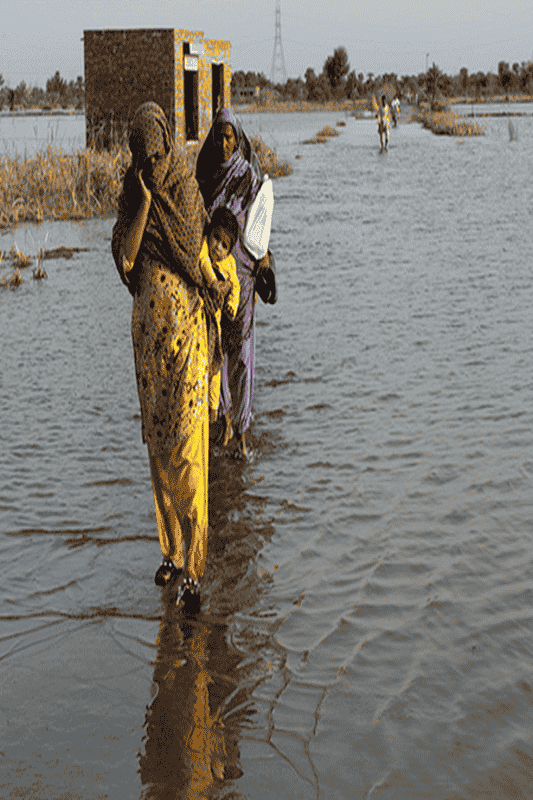
The Mullah Led Development Model
A longstanding debate in economics – and among social scientists more broadly – centers on how best to deliver international aid to developing countries. Should these countries’ governments rely on top-down wisdom from donor capitals? Or should they focus more on funding bottom-up solutions dictated by recipients?
When the Trump administration proposed cutting the US State Department’s budget and reducing the amount of money various US agencies allocate to the world’s poorest, this debate took on a new urgency. And a response from the Islamic world – the recipient of much of America’s aid in recent years – may hold important lessons for devising the best way forward.
Simply put, Western countries’ current approach is not working. This can be seen most clearly in Pakistan. Despite massive increases in aid dollars, including billions authorized by former President Barack Obama, those of us on the ground are largely cut out of the delivery process.
There are roughly 70 separate local aid offices and 40 international NGOs involved in providing aid to Pakistanis. But most decisions about how to spend the money they receive are made outside the country.
Aid recipient countries like Pakistan are at the bottom of the international development food chain. Budgets are prepared in offices far from the intended site of delivery, and bilateral and multilateral programs often establish priorities (like health care, schooling, or poverty reduction) without much input from the receiving country.
Yet, because beneficiary governments are so hungry for aid dollars, they are usually all too eager to follow the agendas prepared by donors and their contractors. They say yes to the conditions and the studies and the evaluations. And they acquiesce when told where and how to allocate funds.
Local partners can only pick up the crumbs at the end of a long process involving too many “experts,” making recipients feel disenfranchised and unable to see a better future.
But, rather than simply cutting aid, what the US should consider is reordering how – not if – it delivers aid. And it is here, in the bottom-up approach being tested in parts of the Islamic world, that important lessons can be gleaned.
The void created by the shortcomings of Western aid programs has produced homegrown solutions in places like Pakistan, where socially minded, entrepreneurial religious leaders – mullahs – are increasingly making their presence felt. These key community members offer Muslims a clearer vision of a better life than Western aid agencies ever could.
People relate to mullahs and believe in what they are offering. This trust is something Western donors have never placed a premium on earning.
In Pakistan, mullahs raise funds from their communities and from official and private donors in the wealthy oil-producing countries. Unlike funding from, say, the US Agency for International Development (USAID), recipients are not burdened with consultancy fees or mandatory spending evaluations. There are no policy matrices, controlled surveys, or field reports to file. There is just cash, raised through a religious channel and funneled directly to the programs and communities that need it.
People relate to mullahs and believe in what they are offering. This trust is something Western donors have never placed a premium on earning.
Throughout the Muslim world, self-motivated, entrepreneurial mullahs have operated without bureaucrats and hardship allowances, five-star hotels, or business-class tickets. Not all their efforts are altruistic; in a few instances, crowd-funding and informal networks have benefited terrorism.
Just like American voters who supported Trump, not every Muslim is an assiduous fact-checker. But in most cases, mullah-led efforts have raised cash for schools, hospitals, and other services that Western aid money has failed to deliver, while shaping how Muslim communities develop.
Demand for this alternative vision of aid has increased with the evident failure of the modernization-based development paradigm. While Western experts peddling bureaucratized solutions enforced superficial modernity, based on dress, language, and lifestyles, many Muslims saw no real benefit in the form of expanded economic opportunity and greater social mobility. So, they sought, and established, their own solutions.
The economist William Easterly has argued that the best way to reform international development is to shift money from top-down “experts” to “bottom-up searchers – like Nobel Peace Prize winner and microcredit pioneer Muhammad Yunus – who keep experimenting until they find something that works for the poor on the ground.”
That, I would argue, is exactly what mullahs are doing in the Islamic world. Development is most successful when it emerges from solutions that are identified, tested, and sustained locally, not when Western agencies and technocrats spend huge sums on top-down approaches.
Today, a new breed of Muslim “searchers” is offering bottom-up development solutions. As the mullah-led development model continues to spread in the Muslim world, “experts” in the West would do well to understand the reasons for its success.
Editor’s Note: An earlier version of this post was published on April 20, 2017 as an Opinion piece here on the Eco-Business website.
About the Author: Nadeem ul Haque is Vice Chancellor, PIDE.



